Rob Bignell's Blog, page 302
April 2, 2015
Editing tip: Learn some literary devices
If your 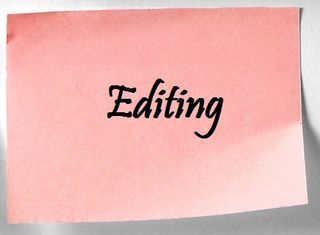 current writing feels flat, then expose yourself to some new techniques. This can be done by reading a critically acclaimed novel from outside the genre you write in or by discovering a literary device described in a writing guidebook. Try your hand at the literary devices gleaned from the novel or writing guidebook.
current writing feels flat, then expose yourself to some new techniques. This can be done by reading a critically acclaimed novel from outside the genre you write in or by discovering a literary device described in a writing guidebook. Try your hand at the literary devices gleaned from the novel or writing guidebook.
Need an editor? Having your book, business document or academic paper proofread or edited before submitting it can prove invaluable. In an economic climate where you face heavy competition, your writing needs a second eye to give you the edge. Whether you come from a big city like Los Angeles, California, or a small town like Hell, Michigan, I can provide that second eye.
Amazon.com Widgets
April 1, 2015
It’s not all too much: Faint vs. feint
Some readers 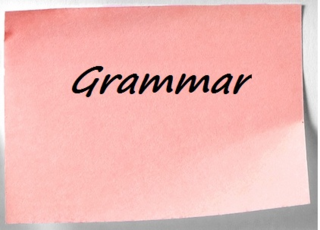 (and editors, too!) nearly pass out when they see writers mix up these two words.
(and editors, too!) nearly pass out when they see writers mix up these two words.
Faint generally means to deficient or barely perceptible, as in a faint light or to lose consciousness (e.g. Surprisingly, very few people ever faint during an earthquake in Los Angeles.).
Feint is to deceive through a mock action, as in The New York running back feinted going left but went right and scored.
Now that you know the difference, there’s no reason for you to ever again find these two words tricky!
Need an editor? Having your book, business document or academic paper proofread or edited before submitting it can prove invaluable. In an economic climate where you face heavy competition, your writing needs a second eye to give you the edge. Whether you come from a big city like Chicago, Illinois, or a small town like Bantam, Connecticut, I can provide that second eye.
<A HREF="http://ws-na.amazon-adsystem.com/widg... Widgets</A>Related articles
 A disagreeable diversion: pastime v. past time
A disagreeable diversion: pastime v. past time Writing Prompt: Tell what you feel/desire/need
Writing Prompt: Tell what you feel/desire/need Five Great Quotations about Books
Five Great Quotations about Books A change in the text: Amend vs. emend
A change in the text: Amend vs. emend
March 31, 2015
Writing Prompt: Make up a Situation
Suffering from 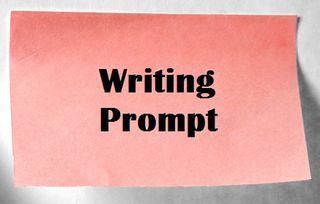 writer’s block or need to add some spunk to your writing? The problem may be that you need to change up your routine.
writer’s block or need to add some spunk to your writing? The problem may be that you need to change up your routine.
To that end, try this tip: Observe other people while in a public location. As you don’t have the full context of what they’re talking about or doing, make up a situation they are in – planning a heist, fleeing an alien assigned to assassinate them, deciding where they will hide a dead body, and so on. Now wrap their gestures and snatches of conversation into this situation and create a scene or even a whole story.
Need an editor? Having your book, business document or academic paper proofread or edited before submitting it can prove invaluable. In an economic climate where you face heavy competition, your writing needs a second eye to give you the edge. Whether you come from a big city like Provo, Utah, or a small town like Dismal, Tennessee, I can provide that second eye.
Amazon.com Widgets
March 30, 2015
Don’t smother writing with your red pen
Sometimes writers 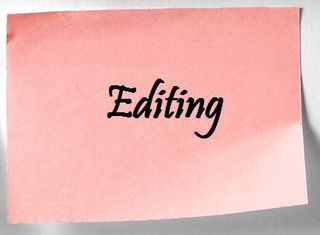 sabotage their own stories by ensuring every sentence is grammatically correct, as if they were turning it in to their middle school English teacher. Read through many of the great literary works, though, and you’ll find enough grammar and mechanical errors to make a spell check program explode. Are you taking the “life” out of your story by smothering it with your red correction pen? Read a paragraph that you’ve corrected and then the original. Which sounds better?
sabotage their own stories by ensuring every sentence is grammatically correct, as if they were turning it in to their middle school English teacher. Read through many of the great literary works, though, and you’ll find enough grammar and mechanical errors to make a spell check program explode. Are you taking the “life” out of your story by smothering it with your red correction pen? Read a paragraph that you’ve corrected and then the original. Which sounds better?
Need an editor? Having your book, business document or academic paper proofread or edited before submitting it can prove invaluable. In an economic climate where you face heavy competition, your writing needs a second eye to give you the edge. Whether you come from a big city like Sacramento, California, or a small town like Intercourse, Pennsylvania, I can provide that second eye.
<A HREF="http://ws-na.amazon-adsystem.com/widg... Widgets</A>Related articles
 What is a 'cookie cutter' story?
What is a 'cookie cutter' story? Tie the grammar knot: Fiancée vs. fiancé
Tie the grammar knot: Fiancée vs. fiancé A block of better grammar: Chock vs. choke
A block of better grammar: Chock vs. choke
March 29, 2015
Five Great Quotations about Why We Write
“We are 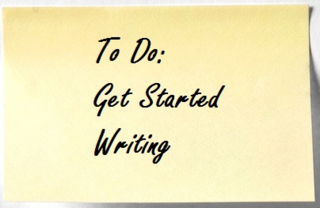 a species that needs and wants to understand who we are. Sheep lice do not seem to share this longing, which is one reason why they write so little.” - Anne Lamott
a species that needs and wants to understand who we are. Sheep lice do not seem to share this longing, which is one reason why they write so little.” - Anne Lamott
“The purpose of literature is to turn blood into ink.” - T. S. Eliot
“Writing is an act of hope. It is a means of carving order from chaos, of challenging one’s own beliefs and assumptions, of facing the world with eyes and heart wide open. Through writing, we declare a personal identity amid faceless anonymity. We find purpose and beauty and meaning even when the rational mind argues that none of these exist.” - Jack Heffron
“You may tell a tale that takes up residence in someone's soul, becomes their blood and self and purpose. That tale will move them and drive them and who knows that they might do because of it, because of your words. That is your role, your gift.” - Erin Morgenstern
“Stories have to be told or they die, and when they die, we can't remember who we are or why we're here.” - Sue Monk Kidd
Need an editor? Having your book, business document or academic paper proofread or edited before submitting it can prove invaluable. In an economic climate where you face heavy competition, your writing needs a second eye to give you the edge. Whether you come from a big city like Augusta, Georgia, or a small town like Funk, Ohio, I can provide that second eye.
&lt;A HREF="http://ws-na.amazon-adsystem.com/widg... Widgets&lt;/A&gt;Related articles
 Five Great Quotations about Craft of Writing
Five Great Quotations about Craft of Writing Five Great Quotations about Autobiography
Five Great Quotations about Autobiography Writing inspiration: Read their inspirations
Writing inspiration: Read their inspirations Five Great Quotations about Books
Five Great Quotations about Books
March 28, 2015
Writing Inspiration: Writing is my way of life.
“You must 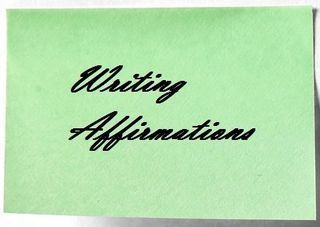 stay drunk on writing so reality cannot destroy you.” ― Ray Bradbury, “Zen in the Art of Writing”
stay drunk on writing so reality cannot destroy you.” ― Ray Bradbury, “Zen in the Art of Writing”
Hopefully, you’ve spent some time now reading and internalizing the writing affirmations onthis blog. The entries listed on this blog are based on the premise that several small choices can go a long way toward ensuring large, life-altering changes. The challenge now facing you is continuing to write each day, preferably on a book that you’ve always wanted to publish.
Falling into old habits, though, is easier than maintaining new ones.
To prevent that from occurring, begin each day by reminding yourself who you are: You are a writer, and writing is a way of life for you. Maybe you’ll need to scribble that on a piece of paper and tape it to your bathroom mirror so you read it every morning when you brush your teeth (What? You don’t brush your teeth every morning? Unfortunately, fostering that habit is beyond the purview of this blog.). After all, if you remind yourself daily to do something, you likely will do it, and soon it becomes habit.
At the end of each day, also remind yourself how much pleasure you derived during your writing session and the good feelings it left you with. Though writing can be hard work, you did receive a reward for it – the satisfaction that comes from being creative, the feeling of accomplishment as your book comes a few hundred words closer to being completed. By focusing on the benefits writing brought you, you’ll want to get back at it again tomorrow.
Another way to internalize the writing habit is to hang around people and places who will encourage and reinforce it. For example, join a writers’ group or regularly attend book readings. In economics, this is known as “choice architecture,” in which the decisions you make are largely based on the choices offered to you. Hence, if you wish to write more, then organize your time so you’re around people in which writing, as one of many choices about how you’ll spend your free time, looms large.
Simply put, change your habits, and you’ll change the outcomes in your life. After all, if you take up gardening next year, you’ll probably start receiving compliments on your beautiful rose bush. If you want to receive compliments on your book, then take up writing next year (And start brushing your teeth when you wake up, okay?).
Need an editor? Having your book, business document or academic paper proofread or edited before submitting it can prove invaluable. In an economic climate where you face heavy competition, your writing needs a second eye to give you the edge. Whether you come from a big city like Jackson, Mississippi, or a small town like Fleatown, Ohio, I can provide that second eye.
&amp;lt;a href="http://ws-na.amazon-adsystem.com/widg... Widgets&amp;lt;/a&amp;gt;Related articles
 Project bible useful for keeping story ideas
Project bible useful for keeping story ideas Five Great Quotations about Writer's Block
Five Great Quotations about Writer's Block 'Writing Affirmations' book hits shelves
'Writing Affirmations' book hits shelves What are examples of 'concrete details'?
What are examples of 'concrete details'? Boost book sales via backlinks to your website
Boost book sales via backlinks to your website
March 27, 2015
Editing client publishes his first travelogue
A recent 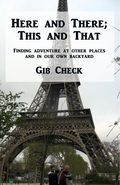 editing client of mine has published his first book, “Here and There; This and That,” a collection of newspaper columns and essays about travels he and his wife have taken. Originally published in the Adams-Friendship, Wis., and Wisconsin Rapids newspapers, among the many adventures Gib Check’s columns tell about include: discovering new friendships in Tuscany; digging for diamonds in an Arkansas field; hiking into the Grand Canyon; facing off bison on a South Dakota highway; spending a night with museum dinosaurs. The book is available for purchase online.
editing client of mine has published his first book, “Here and There; This and That,” a collection of newspaper columns and essays about travels he and his wife have taken. Originally published in the Adams-Friendship, Wis., and Wisconsin Rapids newspapers, among the many adventures Gib Check’s columns tell about include: discovering new friendships in Tuscany; digging for diamonds in an Arkansas field; hiking into the Grand Canyon; facing off bison on a South Dakota highway; spending a night with museum dinosaurs. The book is available for purchase online.
Need an editor? Having your book, business document or academic paper proofread or edited before submitting it can prove invaluable. In an economic climate where you face heavy competition, your writing needs a second eye to give you the edge. Whether you come from a big city like Daytona Beach, Florida, or a small town like Rabbit Hash, Kentucky, I can provide that second eye.
&amp;lt;A HREF="http://ws-na.amazon-adsystem.com/widg... Widgets&amp;lt;/A&amp;gt;Related articles
 Editing tip: Don't worry about being satisfied
Editing tip: Don't worry about being satisfied Editing tip: Use parentheses and keep going
Editing tip: Use parentheses and keep going A change in the text: Amend vs. emend
A change in the text: Amend vs. emend Five Great Quotations about Craft of Writing
Five Great Quotations about Craft of Writing Pitch book through Back of Room sales
Pitch book through Back of Room sales
March 26, 2015
Editing tip: Don’t worry about being satisfied
Having trouble 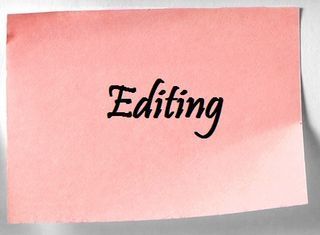 with a passage? Simply write something different in the spot that bothers you. Even if you’re not satisfied with what you’ve just written, don’t worry about it. In a week, re-read the passage. Does what you’ve written now sound fine or does it still need revising?
with a passage? Simply write something different in the spot that bothers you. Even if you’re not satisfied with what you’ve just written, don’t worry about it. In a week, re-read the passage. Does what you’ve written now sound fine or does it still need revising?
Need an editor? Having your book, business document or academic paper proofread or edited before submitting it can prove invaluable. In an economic climate where you face heavy competition, your writing needs a second eye to give you the edge. Whether you come from a big city like Daytona Beach, Florida, or a small town like Rabbit Hash, Kentucky, I can provide that second eye.
&lt;a href=&quot;http://ws-na.amazon-adsystem.com/widg... Widgets&lt;/a&gt;Related articles
 Self-publishing tip: Revise by deconstructing
Self-publishing tip: Revise by deconstructing Five Great Quotations about Craft of Writing
Five Great Quotations about Craft of Writing Pitch book through Back of Room sales
Pitch book through Back of Room sales Sales advantages of writing nonfiction books
Sales advantages of writing nonfiction books
March 25, 2015
What a difference a letter makes: Adopt vs. adapt
Writers who 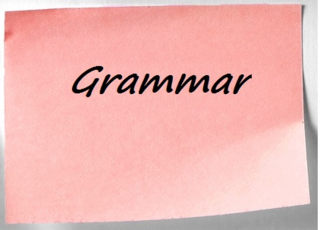 misuse these two words should modify their writing.
misuse these two words should modify their writing.
Adopt is to make one’s own, such as taking on the responsibility of a minor a child or integrating an idea into your belief system. For example, The city council plans to adopt strict restrictions on gentlemen’s clubs to discourage them from moving into town.
Adapt means to adjust to a situation. To wit, The company had to adapt to a new economic reality and change its product line.
Now, incorporate this knowledge with conviction!
Need an editor? Having your book, business document or academic paper proofread or edited before submitting it can prove invaluable. In an economic climate where you face heavy competition, your writing needs a second eye to give you the edge. Whether you come from a big city like Toledo, Ohio, or a small town like Gnaw Bone, Indiana, I can provide that second eye.
&lt;A HREF="http://ws-na.amazon-adsystem.com/widg... Widgets&lt;/A&gt;Related articles
 Writing Inspiration: The amount of writing I have done and my skill as a writer grows every day.
Writing Inspiration: The amount of writing I have done and my skill as a writer grows every day. Five Great Quotations about Books
Five Great Quotations about Books Writing Prompt: Telling what 'I feel...'
Writing Prompt: Telling what 'I feel...' Writing inspiration: Read your favorite author
Writing inspiration: Read your favorite author
March 24, 2015
Writing Prompt: Random words
Suffering from 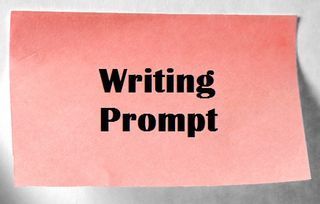 writer’s block or need to add some spunk to your writing? The problem may be that you need to change up your routine.
writer’s block or need to add some spunk to your writing? The problem may be that you need to change up your routine.
To that end, try this tip: Open a dictionary or a thesaurus to any page and select a random word. Do this four more times, and carry the list of words wherever you go. When you find yourself with down time, write a paragraph about how the surroundings you are in – the conference room, the landscape passing by you on the bus ride, a store while waiting in line – exemplify that word. Better yet, select the words for your list from a story you’re penning, focusing on incomplete images or concepts in your manuscript.
Need an editor? Having your book, business document or academic paper proofread or edited before submitting it can prove invaluable. In an economic climate where you face heavy competition, your writing needs a second eye to give you the edge. Whether you come from a big city like Ogden, Utah, or a small town like Rake, Iowa, I can provide that second eye.
Amazon.com Widgets



